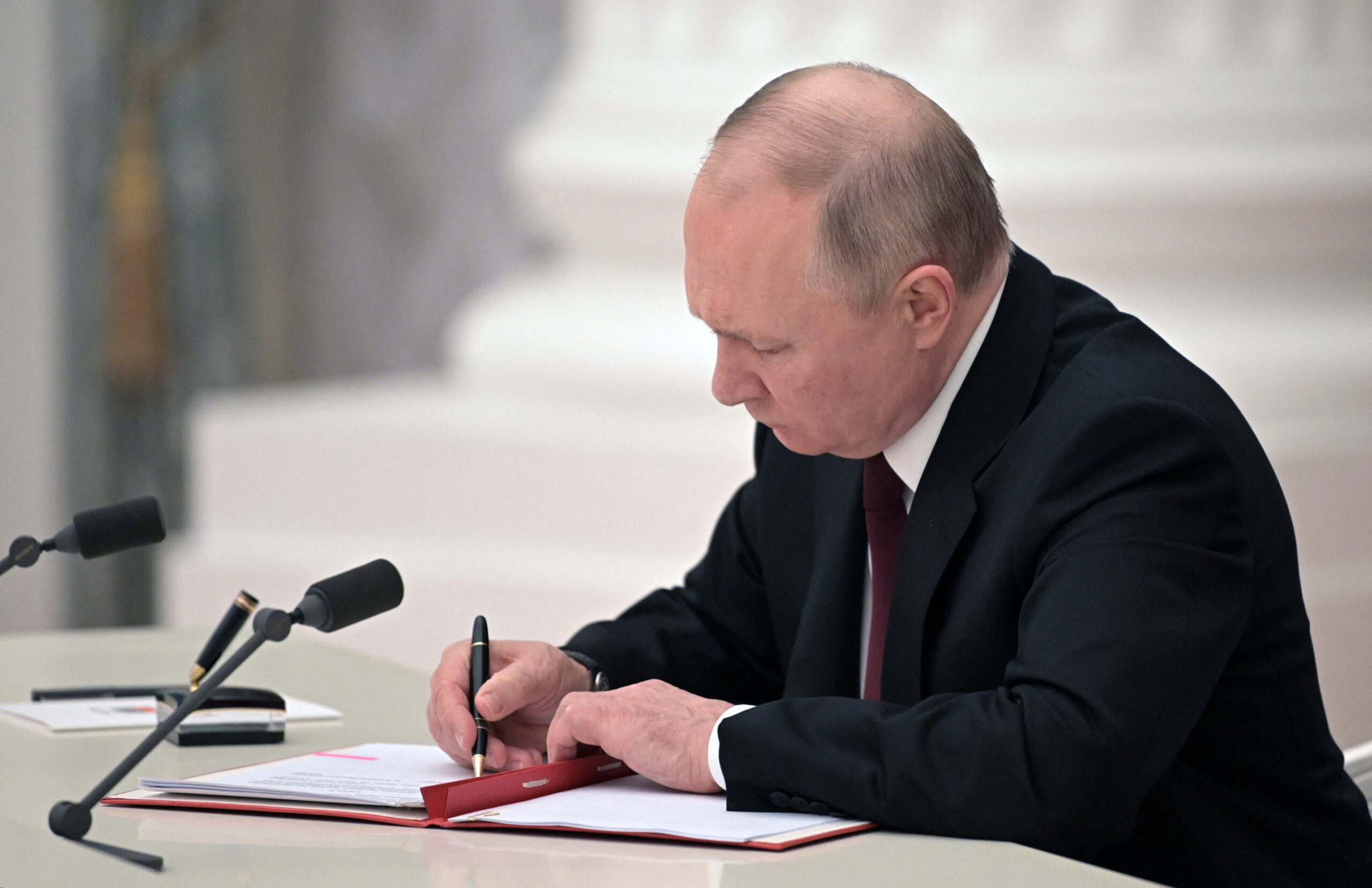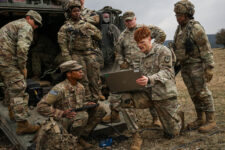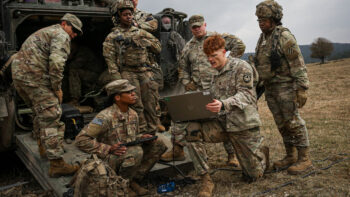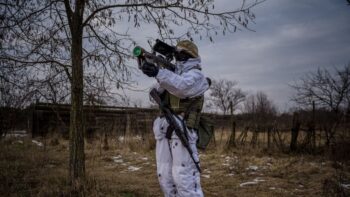
Russian President Vladimir Putin signs documents, including a decree recognizing two Russian-backed breakaway regions in eastern Ukraine as independent, during a ceremony at the Kremlin in Moscow on February 21, 2022. (ALEXEY NIKOLSKY/Sputnik/AFP via Getty Images)
WASHINGTON: Outright war between Russia and Ukraine appears just inches away, following Russia’s decision to declare two Russian-backed, self-described governments in Ukrainian territories as independent and approve sending “peacekeeping” military units into their territory.
Following an extraordinary, almost hour-long speech in which he called into question the very concept of a Ukrainian nation, Russian President Vladimir Putin today signed a declaration officially recognizing the self-proclaimed breakaway republics of Donetsk and Lugansk. That was followed up by an order from Putin to conduct “peacekeeping” activities in the two Ukrainian territories, which have been the site of an eight-year long conflict since Russia’s seizure of Crimea in 2014.
What that means in real terms is that, under the guise of a humanitarian crisis in those regions, Russia now has a clear path to send forces over Ukraine’s border. Russian forces may already be crossing into Ukraine; videos on twitter began circulating soon after, showing what are claimed to be Russian forces moving into the territories.
Sending forces into Ukraine would seem to constitute a clear invasion. But in a call with reporters, a senior Biden official, speaking of background, dodged a number of questions directly asking if the White House considers a new invasion underway.
While calling the move a “clear violation of international law” as well as Ukraine’s sovereignty, the official repeatedly pointed out that Russian forces have at various times since 2014 been inside the Donbas region. “Russian troops moving into the Donbas would not itself be a new step,” the official said.
While it is true the US and its allies have long identified “little green men” operating in the Donbas as being part of the Russian military, Moscow has denied it for years and those forces operate whiteout insignia. Signing a political decree announcing that the Russian military will be sending troops into the region would seem an escalation.
Since the Ukrainian crisis began, the Biden administration has been using the threat of massive economic sanctions against Russia as its primary deterrent tactic. Given Putin’s speech and the resulting declaration, the question is what will actually trigger those sanctions.
The Biden official dodged on this issue as well, declining to say what would represent the red line that would set the large package of sanctions into play. However, the official’s comments made it clear that while a small set of sanctions has been activated — President Joe Biden has already signed an executive order prohibiting individuals from doing business with the two breakaway republics — the larger set is, at least tonight, not being initiated.
Instead, the official warned, there would be “severe” economic measures should “Russia further invade” Ukraine. “We are going to assess what Russia does and not focus on what Russia says.”
That may not satisfy a number of experts and former officials who have taken to Twitter to call for immediate action, including former NATO Secretary General Anders Fogh Rasmussen, who summed it up thusly: “Sanctions now.”
“Putin’s nationalistic speech has two targets: to bolster Russian morals and scare the West,” tweeted Latvian defense minister Artis Pabriks. “The only plausible answer should be: massive sanctions to Russia and massive economic and military support to Ukraine. It must be done now to avert larger crisis.”
The senior US official also said that the US has been contacting individuals and groups they believe are on a Russian kill list, the existence of which was first reported by Foreign Policy.
“Those will be horrific crimes, war crimes even. We have been warning individuals and groups who we think could be targeted… to try and enable them to protect themselves or move to places where it might be safer,” the official said.
Sullivan says Ukraine supplemental should cover all of 2024, long-range ATACMS now in Ukraine
“We now have a significant number of ATACMS coming off their production line and entering US stocks,” Jake Sullivan said today. “And as a result, we can move forward with providing the ATACMS while also sustaining the readiness of the US armed forces.”


























